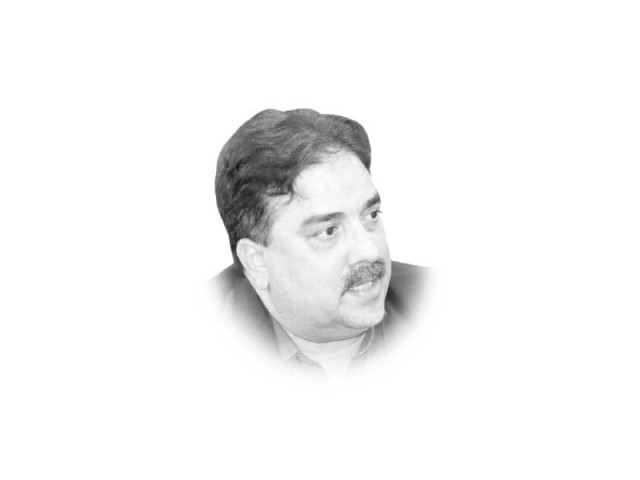Overcoming trust deficit in state-centrism
The status quo is one of confusion, and faces irresistible challenges of fixing the economy

Niall Ferguson, a Scottish-American historian, said low trust societies do not prosper. It is only high trust societies that go on to build strong institutions, and an edifice of rule of law in evolving an organic social contract. If so are the benchmarks, Pakistan today must ponder over its precipitating social strata, and reorient a new lifeline for hope and positivity.
A heterogeneous society of 245 million is in dire straits. It is unfortunate that after enjoying seven decades of sovereignty, it has not been able to erect a viable social contract, its national institutions are in decay and heading towards a collision course. This is so because we as a nation had blinked several times, and were willing to compromise by giving leeway to elements that had a petty personal agenda to boast. Our tendency to experiment with quasi-democracy and quasi-military governance that ultimately boiled down to an untenable hybrid nomenclature is at the root-cause of all ills.
A simple introspection reveals that the nation was hoodwinked in the name of democracy and national security, and the present outcome is nothing but a mess. As a nation we are at each other’s throats, parochialism is on the rise, and a sense of marginalisation and disgust has crept deep inside the body-politick. To further compound the mosaic is terrorism, and the sifting regional dynamics with which we could not strike a semblance of decency.
It is disgusting that on the 50th year of celebrating the 1973 Constitution, we bid an un-ceremonial adieu to it. Unlike military dictators putting it in abeyance, this time around it was pronounced clinically dead and resurrecting it was met with vengeance. In doing so none but the political forces were responsible for this unpardonable crime, and as a result, the society today is devoid of rule of law, and the will of the people of Pakistan hardly matters in state-centrism.
The status quo is one of confusion, and faces irresistible challenges of fixing the economy and restoring the confidence of the masses in the edifice of the state. Political stability is at all times low, and is riding high on a confrontational path. The reason is because none of the adversaries want to cede their ground, and are mindlessly heading towards the brink. The apathy is that the judiciary too is crying foul, and is regrettably compromised.
The convention of resorting to the international lenders, especially the IMF, on their draconian terms has profusely bled the nation. It has alienated the nation by burdening them under debt, and denying them the capacity and opportunity of social mobility. Skyrocketing inflation coupled with unemployment has bred discontent, and brain drain has become the order of the day. More than 50% of the populace is under the line of poverty, and literally strangulated at the hand of an elite capture. This gangrene is not going to end with oral medication, and is there to stay.
The question is: what’s now? The way out is to walk-along with the generational change, and let Pakistanis make a choice of their own. The drawing room culture of imposing solutions has not worked, and nor will it in the future. Bangladesh, India and many other backward countries had sprung back to national pride and socio-economic progress by adhering to the will of the people. The ‘defunct’ 1973 Constitution too had set a similar commandant, and abiding by that in letter and spirit is indispensable for our survival.
The least that is in need of being done is each one of us must do the job that we are generically suited for, and stop interfering into others’ domain. Luckily all stakeholders agree on this Hobson’s choice, but seem to be berserk in throwing it to the wind.
There is a proverb that “even a correct decision is wrong when taken too late.” Time to start feeling the pinch and pull back from the brink. There is a piece of truth that we all must say and confess in national character, and humbly submit to it. This is how trust deficit can be overcome and our survival as a nation-state assured.
Published in The Express Tribune, May 16th, 2024.
Like Opinion & Editorial on Facebook, follow @ETOpEd on Twitter to receive all updates on all our daily pieces.














COMMENTS
Comments are moderated and generally will be posted if they are on-topic and not abusive.
For more information, please see our Comments FAQ